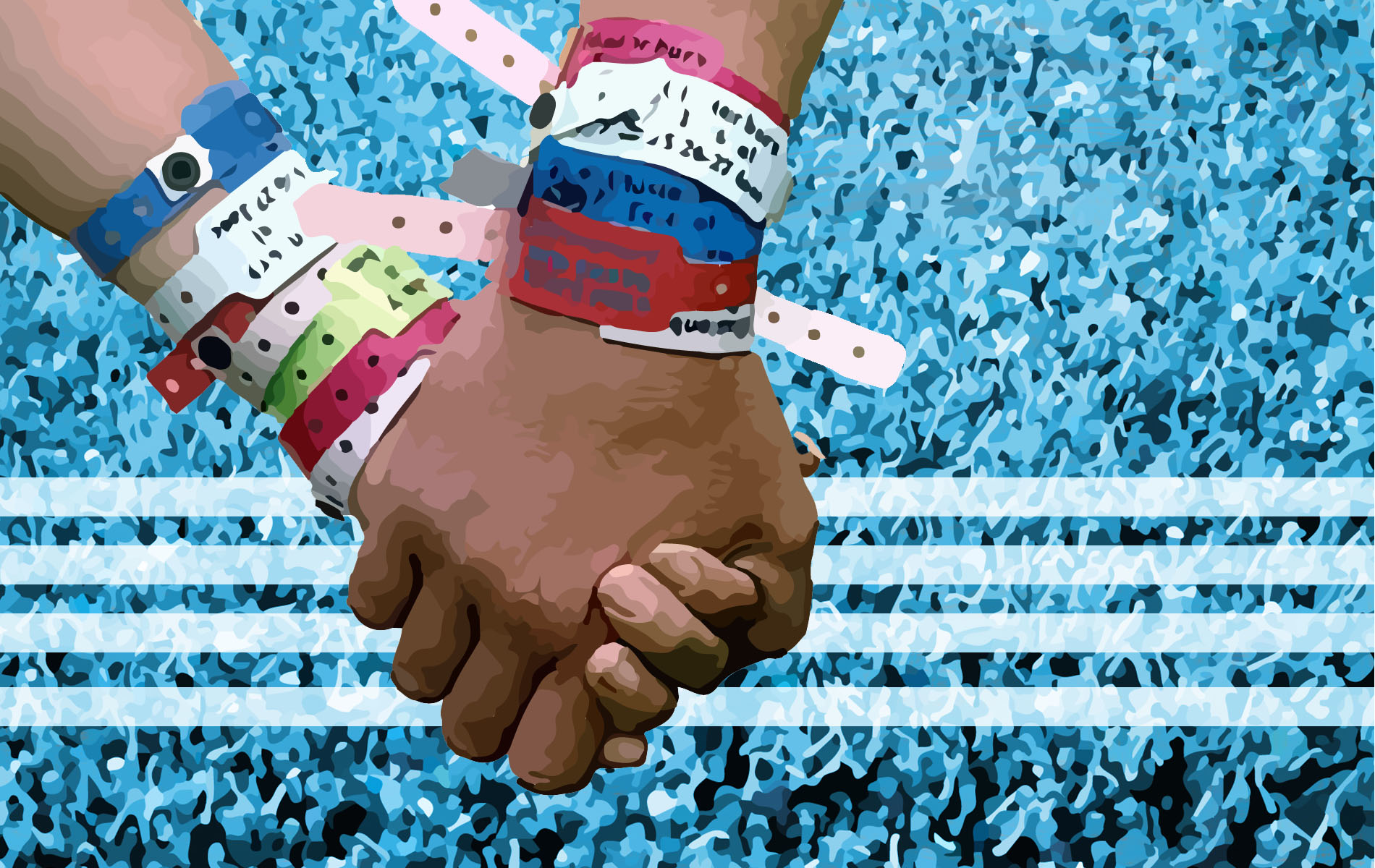Be it alongside young hipsters donning floral crowns, shirtless Surrealists hitting the Playa, or fervent fans chugging Faygo, the setting of mass-market festivals provides some of the most unique reporting of summer.
by The Editors
Summertime and the living is a party, or at least it is for the hundreds of thousands of festival attendees every year. Lollapalooza, one of the larger music festivals, happened just last weekend (see our Lollapalooza playlist if you weren’t able to attend or want to relive some musical moments), and across the country so-called “Burners” are prepping their camp supplies for Burning Man, which will take place in the middle of the desert at the end of the month. Aside from these two, there are so many other festivals to find stories at, both big and small. Read on for some unique perspectives on a feminism festival, the Gathering of the Juggalos, and even the nation’s largest Christian music festival.
1. “Live from Insane Clown Posse’s Gathering of the Juggalos” by Camille Dodero
New York Village Voice, Sep. 8, 2010
Dodero opens with a defining statement: “The Gathering of the Juggalos is an annual summer pilgrimage for people who know they are among the most hated on earth.”
If you haven’t heard of the Gathering of the Juggalos, this article is a great introduction to one of the most unique fandoms in America. If you have heard of The Gathering, this article will answer most of the questions you’ve ever raised about about this esoteric music festival. Dodero’s recount of her experience offers a great introduction to the four-day celebration of the Insane Clown Posse’s music and their lewd, lawless culture. Read on to find out the attraction behind this spurned subgenre, the history of the Gathering, and just why everyone there is so obsessed with Faygo.
2. “Debunking the Bunk Police: Test Your molly and Other Lessons in Narcotics” by Kiran Herbert
The Weeklings, April 10, 2014
It’s no secret that controlled substances are a regular party favor at all varieties of festival. Alcohol and edibles have a steady presence here, but there’s also ubiquitous party drugs like cocaine, ecstasy, and MDMA. Although this might sound fun for people with a specific set of recreational interests, it’s nothing to take lightly. In recent years, music festivals have played host to various counterfeit drug dealings–cocaine’s cut with methamphetamine, and people mistakenly buy dangerous drugs like Bath Salts thinking they’re getting LSD. In response to this, a grassroots organization called the Bunk Police has established a presence at many of these events, selling drug testing kits for $20 in hopes that people will give more consideration to their recreation.
Scariest quote: “I can confidently say that from what we saw, over half of the substances were misrepresented, most commonly bath salts being sold as MDMA,” he said. Of the cocaine samples his crew tested over the summer, only one in over 30 cases even contained cocaine. As a population, we’ve been dealing with cocaine for decades, and when cut, most often it’s with methamphetamine. Bath Salts and other research chemicals—many of which are legal and available in bulk on the Internet—that masquerade as Molly and LSD, pose a more serious threat.”
3. “Welcome to Creation, the Christian Music Fest Where the Flock Rocks” by Alana Levinson and Aaron Mendelson
Mother Jones, Aug. 12, 2013
The Believer, November 2003
When Michelle Tea wrote this article for The Believer in November 2003, the Michigan Womyn’s Festival had been going on for 28 years; more than ten years later, the exclusion of transgender and transsexual women has not abated. Tea’s article offers an in-depth account of the WBW (women born women) only policy that sparked the creation of Camp Trans. Now defunct, the camp served as an alternative for trans women who, had they been allowed, would have attended the Michigan Womyn’s Festival. Reading the “Transmissions from Camp Trans,” knowing full well it’s no longer operating, adds a sobering level of significance to Tea’s words, and those of her subjects.
5. “Endless Spring” by Rebecca Mead
The New Yorker, April 1, 2002
Another one from the archives, “Endless Spring” by Rebecca Mead only betrays its age is it’s focus on Girls Gone Wild, the salacious, bobbylicious TV show that went bankrupt in 2002. In “Endless Spring,” Mead tells the story of two avid spring breakers and aspiring filmmakers, whose expose on college kids’ South Padre spring break is overshadowed by the simultaneous release of the soon-to-be-huge series. In telling their story, Mead delves into the bowels of one of the most revered, and out of control, collegiate rights of passage.




